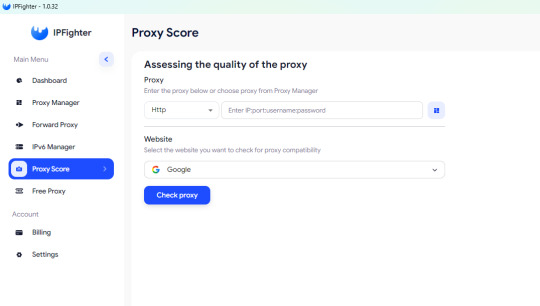#techfreedom
Explore tagged Tumblr posts
Text
https://www.venclikovi.com/traveling-abroad-heres-why-you-need-a-vpn/
I didn’t think I needed a VPN. Until I traveled.
One minute I was sipping coffee in Europe, the next I was locked out of my bank, blocked from reading my favorite news, and stuck with a censored internet that treated me like a criminal.
Turns out, when you leave your country, you leave your online freedom behind too.
That’s when I got a VPN. Not to “hide” – but to take back control. No more weird restrictions. No more being tracked on shady Wi-Fi. I could finally access what I needed, safely and without compromise.
If you believe in freedom, privacy, and truth, a VPN isn’t optional anymore. It’s essential.
Stay smart. Stay free. Stay connected.
#VPNTruth#FreedomOnline#TrumblVoices#StayPrivate#NoMoreCensorship#WakeUpDigital#SecureYourLife#TravelAndProtect#VPNWorks#TechFreedom#SayNoToSurveillance#InfoFreedom#UncensoredInternet#DigitalIndependence#GlobalFreedomNow
1 note
·
View note
Text

Did you know?
Your site shouldn’t be shy! 🙈 With QloudHost’s Adult Web Hosting, you get a secure, private, and reliable space—without judgment.
✅ No takedowns ✅ No bans ✅ Just full freedom to grow your platform.
📢 No limits. No shame. Just freedom. https://my.qloudhost.com/aff.php?aff=2
#AdultWebHosting#DMCAIgnoredHosting#QloudHost#NoShameHosting#SecureHosting#OffshoreHosting#WebHostingSolutions#LinkedInBusiness#TechFreedom#QloudHostOfficial
0 notes
Text

Did you know?
Your site shouldn’t be shy! 🙈 With QloudHost’s Adult Web Hosting, you get a secure, private, and reliable space—without judgment.
✅ No takedowns ✅ No bans ✅ Just full freedom to grow your platform.
📢 No limits. No shame. Just freedom. https://qloudhost.com/adult-hosting/
#AdultWebHosting#DMCAIgnoredHosting#QloudHost#NoShameHosting#SecureHosting#OffshoreHosting#WebHostingSolutions#LinkedInBusiness#TechFreedom#QloudHostOfficial
0 notes
Text
Labours Authoritarian Overreach
I am absolutely furious. The Labour government, in its relentless drive for total control, has forced Apple to remove its most advanced data security tool End-to-End Encryption for iCloud. This isn’t just a disappointing move it’s an outright betrayal of British citizens and a chilling moment for digital privacy in the UK.
The reason behind this disgraceful decision? Labour’s authoritarianism knows no bounds. They demanded access to user data, forcing tech companies to compromise security under the guise of “public safety.” Governments worldwide loathe zero-access encryption because it keeps them from snooping into people’s lives without their knowledge. And now, thanks to Labour’s overreach, they have exactly what they wanted direct access to your most private information, from messages and emails to personal files stored in iCloud.
Of course, they’ll dress it up in the usual nonsense: “crime prevention,” “protecting the vulnerable.”
And let’s be clear serious crimes such as drug trafficking, child exploitation, and cybercrime absolutely must be tackled. But gutting encryption does not achieve that. Criminals will always find ways to hide their activities. Meanwhile, it’s law-abiding citizens like you who get caught in the web of mass surveillance, losing your fundamental right to privacy in the process.
Make no mistake this isn’t about catching criminals. It’s about control. The Labour government wants unrestricted power to monitor, access, and control digital communications. They are actively stripping away the rights of British citizens under the guise of security. This is an absolute disgrace. It sets a horrifying precedent, not just for the UK but globally. If one government can force tech companies to weaken security, what’s stopping others? Where does it end?
This isn’t paranoia this is how the erosion of freedoms begins, one compromise at a time. Today, it’s encryption. Tomorrow, it’s mandatory backdoors in every device, total government oversight of digital communications, and an end to personal privacy as we know it.
The Labour government must go NOW. I have had it with their authoritarian, nanny-state lunacy. They must be held accountable for this attack on digital freedom, and we must fight back before the UK becomes a full-blown surveillance state.
Privacy isn’t a privilege it’s a right. And Labour has just trampled all over it. If you value your security, if you value your freedom, you should be as enraged as I am.
Enough is enough.
#LabourSurveillance#PrivacyRights#UKPolitics#Encryption#DataSecurity#Authoritarianism#MassSurveillance#LabourMustGo#FreedomOfSpeech#GovernmentOverreach#DigitalPrivacy#StopTheSpyState#NannyState#CivilLiberties#PrivacyMatters#LabourFailure#TechFreedom#UKUnderLabour#StateControl#EndMassSurveillance#new blog#today on tumblr
0 notes
Text
Let us ban words, terrorists use them

Telegram’s popularity surged dramatically after Pavel Durov’s arrest. The app skyrocketed in the ranking of top US applications. It jumped from 18th to the 8th place of the most popular apps in the United States. Besides, it’s the second most popular app in the US social networking category.
The app visibility also increased in France, though it hadn’t been widely used there before. It soared into the top-3 of best apps in France. Thus, it secured the third spot overall and number one position in the Social Networking category.
The growing public skepticism towards government actions is evident. Is it a form of protest against threats to digital privacy? Ironically, targeting Durov, the government has achieved the opposite effect! The arrest has propelled Telegram into the spotlight and boosted its user base.
The #FreePavel trend is circulating in all social networks.
Pavel Durov once wrote: "Let us ban words, terrorists use them", highlighting the absurdity of excessive control disguised as security measures.
This approach seems to resonate with the public as people are growing more cautious of censorship.
#Telegram#FreePavel#DigitalPrivacy#Censorship#TechFreedom#PavelDurov#PrivacyRights#GovernmentControl#SocialMediaTrends#PublicProtest#DigitalFreedom
0 notes
Text

📵 Unplug for Peace: Tech-Free Meditation
Designate a sacred time each day to disconnect from electronic devices. Let the digital noise fade away as you embark on a tech-free meditation. This intentional break reduces mental clutter, allowing space for inner peace. This is so important to your well-being. We can forget to switch off. I always put my phone down at least an hour before I go to sleep. How do you create your tech-free moments?
Share your tips! 👇
#TechFreedom#digitaldetox#meditationtipsandtechniques#meditationtipsforbeginners#meditationtip#raiseyourvibration#spiritualgrowth#meditatewithme#solaura
0 notes
Text
🚀 Riding the Solana Wave: Seracle's Code-Agnostic Revolution for Web3 Hey crypto enthusiasts! 🌐✨ Exciting news in the blockchain space: Solana is on the rise, and Rust is making a comeback! 🚀 Amidst the hype and skepticism, the synergy between Solana's speed and Rust's power is turning heads. But here's the catch—Rust comes with a learning curve, posing a dilemma for devs cozy with Python or JavaScript.
🌐 Breaking Free with Seracle! 🌐
Enter Seracle, a game-changer for Web3 development! Imagine coding for Solana without being tied down by syntax. With Seracle, you can use your favorite language—Python, JavaScript, Go—and still tap into Solana's power. No more language barriers; it's all about building cool stuff!
✨ Advantages of Seracle's Code-Agnostic Approach: ✨
#NoLearningCurve: Dive into Solana without wrestling with Rust. Seracle opens the doors to a wider talent pool, accelerating innovation.
#FasterDevTimes: Focus on your logic, not syntax. Seracle speeds up development cycles, getting your projects to market quicker.
#EfficiencyMatters: Leverage your existing skills for efficient, optimized Solana projects. No need for redundant learning!
#LanguageFlexibility: Switch between languages as your projects evolve. Choose the right tool for the job and maximize your coding power.
Solana and Rust's rise signals a bright future for blockchain, but Seracle knows one language shouldn't rule them all. By going code-agnostic, Seracle champions a diverse and inclusive developer community.
🌈 Join the Seracle Revolution! 🌈
Your code shouldn't be dictated by the platform. For those riding the Solana wave, Seracle's Public Endpoints are your ticket to endless possibilities—innovation, freedom, and coding like no one's watching! 🚀����
Read the full article here👇 https://blog.seracle.com/2023/12/solana-surge-rust-renaissance/
0 notes
Text
Freelancers and digital nomads, our RDP services are tailored to meet your flexible work requirements.

0 notes
Text

🇮🇳 This 15th of August, when India raises its flag to celebrate freedom, Dotsnkey proudly remembers this special day. . . Just like our country became free, we keep working on new technology. We think that the digital world we use now shows how we can think freely, be creative, and make progress. . . Every time we write code or solve problems, we help our country grow. While fireworks light up the sky, let's also light up the online world by working hard for a better digital future. . . Happy 77th Independence Day! 🎉🌟🙌 . .
#techfreedom#digitalindia#innovatecelebrate#empowertech#proudlydigital#itinnovations#progresswithpride#technation#codingfreedom#innovativeindia#techliberation#itempowerment#innovation#independenceday2023#techpatriots#digitalempowerment#itinspiration#celebrateindependence#dotsnkey#dotsnkeytechnologies
0 notes
Text
Not they tryna reenact KOSA… anyway yall, here’s why KOSA is bad!!
If you don’t already know, KOSA, or Kids Online Safety Act is a bill that was proposed to keep children safe on the internet. You might ask ‘why is this bill bad if it’s in favor of supporting the safety of children online’? Well, according to stopkosa.com, it puts pressure on platforms to add even MORE filters on anything they think is inappropriate for children. This is especially harmful for LBGTQIA+ youth because the knowledge about this topic would be censored, as well as knowledge on suicide prevention and LGBTQIA+ support groups. Do you see how this an issue? For those children who are wanting to learn more about these topics they’d be turned away because of this bill. It would also be likely that it’ll allow the shutdown of websites that allow them to learn about race, sexuality and gender.
This bill would also add more internet surveillance for all users across all social media platforms. It would expand the use of age verification and parental monitoring controls. These things in itself are already very invasive, but doesn’t take into consideration the children who live in unsafe environments where they are domestically abused and/or are trying to escape these situations. To add my two cents onto this, I strongly believe that the KOSA bill is an unnecessary violation of our first amendment rights (if you’re American), and doesn’t really make the internet any more safer. It actually makes it more unusable for youth. Hypothetically, if this bill were to be passed, then this would make social media unusable for literally anybody. To censor content from the youth about wanting to learn about their identity is extremely harmful. Blocking them from accessing resources that may prove as helpful in their scenarios is outlandish and unneeded. We try to shelter our youth so much to the point where we try to boil them down to only being with their parents want them to be and also not being able to let them learn and explore about other things that they may want to identify themselves with. This is very harmful.
This is a list of companies who are saying no to KOSA ..
• Access Now
• ACLU (American Civil Liberties Union)
• Black and Pink National
• Center for Democracy & Technology
• COLAGE
• Defending Rights & Dissent
• Don’t Delete Art
• EducateUS: SIECUS In Action
• Electronic Frontier Foundation
• Equality Arizona
• Equality California
• Equality Michigan
• Equality New Mexico
• Equality Texas
• Fair Wisconsin
• Fairness Campaign
• Fight for the Future
• Free Speech Coalition
• Freedom Network USA
• Indivisible Eastside
• Indivisible Plus Washington
• Internet Society
• Kairos
• Lexington Pride Center
• LGBT Technology Partnership
• Massachusetts Transgender Political Coalition
• Media Justice
• National Coalition Against Censorship
• Open Technology Institute
• OutNebraska
• PDX Privacy
• Presente.org
• Reframe Health and Justice
• Restore The Fourth
• SIECUS: Sex Ed for Social Change
• SWOP Behind Bars
• TAKE
• TechFreedom
• The 6:52 Project Foundation, Inc.
• The Sex Workers Project of the Urban Justice Center
• Transgender Education Network of Texas
• TransOhio
• University of Michigan Dearborn – Muslim Student Association
• URGE
• WA People’s Privacy
• Woodhull Freedom Foundation
There is something you can do to stop the KOSA bill from being passed! On the website I linked, there is a petition. All you have to do is fill out the information and it’ll send off an email for you. The email reads as follows:
I’m writing to urge you to reject the Kids Online Safety Act, a misguided bill that would put vulnerable young people at risk. KOSA would fail to address the root issues related to kid’s safety online. Instead, it would endanger some of the most vulnerable people in our society while undermining human rights and children’s privacy. The bill would result in widespread internet censorship by pressuring platforms to use incredibly broad “content filters” and giving state Attorneys General the power to decide what content kids should and shouldn’t have access to online. This power could be abused in a number of ways and be politicized to censor information and resources. KOSA would also likely lead to the greater surveillance of children online by requiring platforms to gather data to verify user identity. There is a way to protect kids and all people online from egregious data abuse and harmful content targeting: passing a strong Federal data privacy law that prevents tech companies from collecting so much sensitive data about all of us in the first place, and gives individuals the ability to sue companies that misuse their data. KOSA, although well-meaning, must not move forward. Please protect privacy and stop the spread of censorship online by opposing KOSA.
The website also gives you like a format of what you can say if you chose to call your representatives. If after reading this post, you feel inclined to do something then I would say just go ahead and do it. My first time learning about KOSA was today immediately after seeing the post I felt inclined to send my lawmakers an email. Please try to help when you can and this will only take a few minutes so I think this is something that you can consider. This post is getting a little long now, so I’ll stop here. There are more resources online if you would like to learn more about the cons of this KOSA bill, thank you for reading.
#wlfabby#fuck kosa#kosa#internet censorship#stop kosa#lgbtqia#lgbtq community#laws#stop this bill from being passed. 🙏
97 notes
·
View notes
Text
✨ Your Guide to Picking the Perfect Proxy
Not all proxies are created equal – some are faster, more secure, or better suited for specific websites.
✅ Score proxies based on quality ✅ Match proxies to your website’s requirements ✅ Avoid connection errors 👉 Start here: https://go.ipfighter.app/udo38g74l

#ProxySolutions #TechFreedom #IPFighter
3 notes
·
View notes
Text
Letter from TechFreedom to Senate Commerce Committee re: Kids Online Safety Act of 2023 - KOSA-July-26-2023-TechFreedom-Letter.pdf
2 notes
·
View notes
Text
ISPs and robocallers love the FCC plan to “delete” as many rules as possible
Securus also wants the FCC to lift a ban on “ancillary” charges that drive up the prices paid by prisoners and their families. Carr generally supported that 2024 order but expressed some concerns about the rate structure chosen by the FCC. Scalpel or chainsaw? Decisions to eliminate rules can be challenged in court. TechFreedom, a libertarian-leaning think tank, supported the goals of “Delete,…
0 notes
Text
✨ Empower Your Apps. Transform Your World. ✨
✨ Empower Your Apps. Transform Your World. ✨
It’s November 17, the perfect day to level up your app experience! Whether you’re a creator, gamer, or casual user, APKAllRight.com is here to redefine how you use apps.
✅ Ad-free creativity tools ✅ Unlimited gaming resources ✅ Premium features unlocked for free
🌟 MOD APKs are more than downloads—they’re your gateway to ultimate freedom. Discover them today: APKAllRight.com
#TechFreedom #MODMagic #DigitalEmpowerment

0 notes
Text
US VP JD Vances Paris Speech.
In the heart of Paris, JD Vance just delivered one of the most morally clear, pro-American, and courageous speeches you will see fifteen minutes of unfiltered truth, cutting through the noise with the kind of leadership sorely needed in this era of global uncertainty. His topic? America’s role in shaping the future of artificial intelligence (AI). And let me tell you, it was nothing short of fire.
A Stark Contrast to Globalist Hesitation
While many Western leaders fumble around with vague platitudes about “global cooperation” and “AI ethics,” Vance took a different path. He made it abundantly clear that AI is not merely a technological issue it’s a national security imperative, an economic battleground, and a defining test of whether America will lead or cede its dominance to adversaries like China.
Vance rightly pointed out that America has historically been at its best when it embraces technological progress rather than shackling it with overregulation and bureaucratic micromanagement. He warned against the tendency of international bodies and European elites to burden AI development with excessive red tape, ensuring that innovation happens elsewhere most likely in authoritarian regimes with no regard for human rights or democratic values.
America Must Lead, Not Apologize
One of the most striking moments of his speech was his unapologetic defense of American leadership. In a time when too many politicians are content to downplay or even criticise America’s technological dominance, Vance stood firm: The future of AI must be built on American values freedom, ingenuity, and competition not the whims of unelected global bureaucrats.
He called out China’s aggressive push in AI, warning that if the U.S. hesitates, it won’t be European regulators or Silicon Valley activists who fill the void it will be the Chinese Communist Party, wielding AI for mass surveillance, social control, and geopolitical advantage. The message was crystal clear: AI is not just about innovation; it’s about who sets the rules for the 21st century.
A Call to Action
Perhaps the most inspiring part of Vance’s speech was his call to action. He didn’t just identify the problem he laid out a vision. He urged the United States to double down on AI investment, cut through the regulatory fog, and ensure that American tech firms remain the global standard bearers. He made it clear that if the West fails to act decisively, we won’t just lose an economic race we’ll forfeit the very principles that define us as a civilisation.
A Moment of Leadership in a Time of Timidity
In an age where many leaders cower before globalist pressure, JD Vance stood tall. His speech in Paris was not just a policy discussion it was a rallying cry. It was a declaration that America must not only participate in the AI revolution but lead it. Anything less would be a betrayal of the very ideals that have made the United States the beacon of innovation and freedom that it is.
Fifteen minutes of pure truth. Pure fire. This is the kind of leadership we need more of.
America first. AI first. The future depends on it.
#JDVance#AILeadership#AmericaFirst#TechSovereignty#ProAmerican#AIPolicy#FreeSpeech#JDVanceSpeech#AIRegulation#USInnovation#TechFreedom#ArtificialIntelligence#GlobalLeadership#NationalSecurity#Censorship#SiliconValley#USPolitics#JDVanceAI#FutureOfAI#AmericanValues#today on tumblr#new blog
0 notes
Text
Dongle Emulator Service
🔒 Unlock endless possibilities with our Dongle Emulator Service! Say goodbye to hardware restrictions and experience seamless access. 🌐✨ Don't let dongles hold you back—embrace freedom and convenience. Fast, reliable, and secure. Unlock today! 🔓🚀
#DongleEmulator #TechFreedom

0 notes